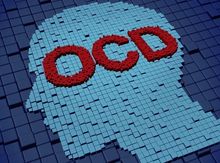Improving Your Mental Self-Care During Times of Uncertainty

By Dr Adrian Lopresti We are currently experiencing extraordinary and uncertain times. The ramifications associated with the coronavirus (COVID-19) are changing daily and we are bombarded with constant news and discussions on TV and social media. Even our email inbox is being flooded with regular messages about the coronavirus and steps we should take (I […]
Continue reading








